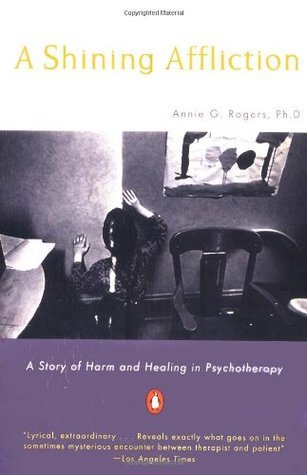
The Gift of Therapy: An Open Letter to a New Generation of Therapists and Their Patients
Book Description
Raw emotions collide as veteran psychiatrist Irvin D. Yalom opens up the vibrant world of therapy in a heartfelt letter to a new generation of healers and seekers. With insights drawn from decades of experience, he ignites a conversation about the transformative power of human connection and the profound healing found in vulnerability. Each page pulsates with wisdom, challenges conventional norms, and lays bare the beauty and complexities of the therapeutic journey. Can therapy change not just the individual but the very fabric of society? Dive into Yalom's compelling vision and uncover the gift awaiting both therapist and patient.
Quick Book Summary
"The Gift of Therapy" by Irvin D. Yalom is an intimate guide for both therapists and their patients, offering practical wisdom and heartfelt encouragement for those entering the world of psychotherapy. Drawing from his decades of clinical experience, Yalom shares 85 concise lessons, distilling essential insights about the therapeutic relationship, the necessity for genuine human connection, and the unpredictable beauty of the healing journey. Rather than strict theory or technical procedures, Yalom highlights the importance of authenticity, openness, and mutual vulnerability between therapist and client. Through his candid reflections, he demystifies therapy, humanizes the patient-therapist bond, and reveals how therapy’s true power lies in shared exploration and the courage to confront life’s ultimate questions. Both a reassuring companion for new therapists and a window into the process for curious patients, this book champions the transformative potential inherent in every therapeutic encounter.
Summary of Key Ideas
Table of Contents
The Healing Power of Human Connection
Irvin D. Yalom’s "The Gift of Therapy" opens with an invitation to engage deeply and authentically within the therapeutic relationship. Yalom insists that therapy at its core is a human encounter rather than a technical fix, urging therapists to go beyond formal roles and to prioritize presence, empathy, and genuine connection. He challenges the notion of therapist neutrality and instead champions honest self-disclosure and openness, believing that such authenticity is often the catalyst for meaningful change.
Embracing Authenticity and Vulnerability
Central to Yalom's philosophy is the idea that vulnerability, both in therapist and patient, fosters trust and healing. He advises therapists not to shy away from revealing their own uncertainties and emotions when it benefits the therapeutic process, while also cultivating an environment in which patients feel safe to expose their deepest fears and aspirations. By modeling vulnerability, therapists encourage clients to drop defensive masks and engage in transformative self-exploration.
Therapist as Fellow Traveler
Yalom reframes the therapist-client dynamic, seeing therapists as fellow travelers rather than distant experts. He argues that therapists and clients share the fundamental human struggles of isolation, mortality, and meaning, and that honest acknowledgement of these shared dilemmas creates a powerful bond. Rather than solving problems from above, therapists walk alongside their clients, providing guidance and support as equals. This humility and partnership highlight the mutual growth possible in therapy.
Navigating Existential Concerns
Confronting existential concerns lies at the heart of much of Yalom’s work. He notes that anxiety, depression, and interpersonal difficulties often reflect deeper issues related to freedom, death, responsibility, and the search for meaning. Yalom encourages therapists to help patients face these concerns directly, supporting them as they grapple with life’s ultimate questions. In doing so, therapists empower their patients to live more purposefully and authentically.
Therapy as a Mutual Journey
The book concludes by celebrating the unique and unpredictable journey that every therapeutic relationship represents. Yalom reminds both therapists and patients that growth arises from collaboration, exploration, and courage. He acknowledges the inevitable challenges and uncertainties in therapy but frames these as opportunities for shared discovery. By embracing the richness and complexity of human connection, therapy becomes not just a means to individual healing, but a force for cultivating deeper understanding and compassion in society itself.
Download This Summary
Get a free PDF of this summary instantly — no email required.





